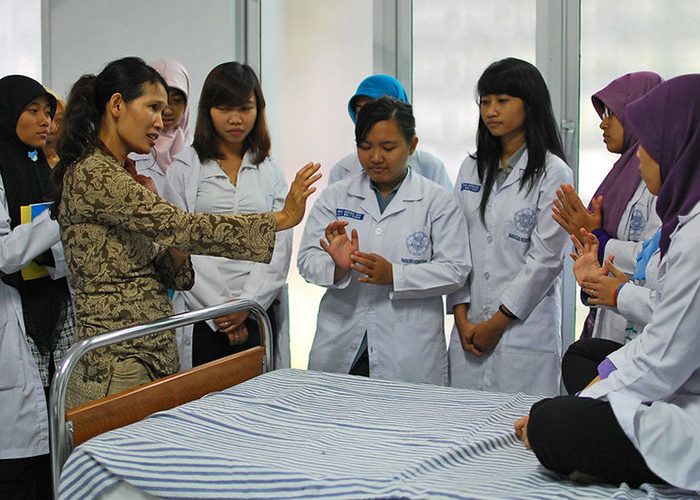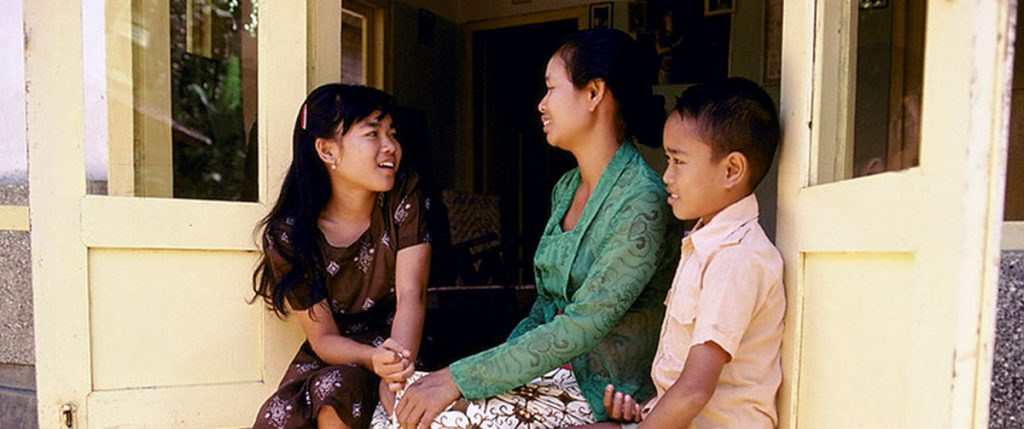GPSA projects
Citizen Voice and Action for Government Accountability and Improved Services
Country: Indonesia
Sector: Governance and Health
Executing Agency: Yayasan Wahana Visi Indonesia (YWI)
Grant Amount: $950,000
Closing Date: October 2018


Frame & Challenge
In the most recent decades, there has been noticeable, albeit slow, progress achieved on improving health outcomes in Indonesia. Life expectancy has been extended and child mortality has fallen considerably. However, there remain substantial challenges in improving health results more generally. Maternal mortality rates remain stubbornly high and progress on reducing neonatal mortality has been limited. In general, Indonesia compares poorly with other countries in the region on many health and nutrition indicators.
Significant bottlenecks and capacity constraints exist, which undermine the quality and effectiveness of service delivery in the health sector. Local authorities at the village district lack the necessary knowledge and capacity to formulate and implement coherent development programs to address citizen needs. Resources are not effectively allocated and health service providers, such as midwives, are not trained properly to offer adequate healthcare. Citizens face also challenges in accessing information to monitor the quality and timeliness of service provision. The project has sought to improve maternal, newborn, and child health and nutrition services through improving service delivery monitoring and engagement.
Solution
Yayasan Wahana Visi (World Vision Indonesia) is an organization with extensive experience working with community youth issues that has received a grant from GPSA to improve maternal, newborn and child health outcomes through improvements in governance and service delivery in selected disadvantaged areas in Indonesia. This will be done by implementing four components that are geared towards: 1) simplifying and disseminating key budget and service delivery information to citizens; 2) deepening citizens’ understanding of budgets, policies, and rights; 3) enhancing citizen engagement with local authorities and developing performance criteria for health services; and 4) strengthening advocacy to mobilize citizens and public opinion for increased government responsiveness to citizens’ needs.
Outcomes
The project ended in late 2018. Highlights of results from the program, as reported in the final evaluation of the project, include:
- There was a statistically significant increase from 2016 to 2017 in households' awareness of services either being provided locally, or being required under government standards. Thus: (i) more women are now giving birth at health services rather than at home; (ii) the number of pregnant women and mother that are aware that antenatal care should be provided at the public health post at village level increased 18 percent; (iii) the use of Posyandu services to provide health checks for infants and children has increased, as well as supplementary feeding programs which provide a healthy meal and teach parents how to cook healthy food for their children using local foods; (iv) more children are being immunized while more infants and pregnant women receive health checks.
- The number of health cadres and local government officials that have heard of minimun standards for Maternal and Child Health services increased 26 percent; 56 percent of health centers are achieving their standards, while 'good to very good' user ratings have doubled to 45 percent compared to 23 percent in 2015;
- Villagers and local health staff assess services against official and villager-determined standards. Joint Action Plans amongst these groups help remedy inadequacies. More than 2000 actions were recorded in the Action Plans, signed and published in communities. Of these, 64 per cent have been implemented.
- Village budgets for health services have increased, allowing new recruitment of midwives, equipment purchases, electricity and water implementation, and stipends for voluntary staff;
- Political leaders and community leaders became more motivated to improve service quality, but also health promotion and use of health services. Leaders took action in their own spheres of responsibility and – through improved relationships with each other – did so in more collaborative ways.
- The Government of Indonesia (GoI) plans to institutionalize social accountability.
Lessons Learned
In its late stages, this grant has produced and continues to lend lessons on future projects to advance social accountability, including but not limited to:
- The design of this grant benefits from the lessons learned from the Citizen Voice and Accountability (CVA) methodology that has been previously and extensively used by Yayasan Wahana Visi to effectively engage with local government authorities.
- While most information which citizens receive on budgets and service-delivery is gleaned from local meetings, the use of ICTs and improved media may be considered in the future to promote inclusion and information dispersion.
- Project standards were more likely to be achieved at higher levels of the service system (Puskesmas and Polindes regions) than at Posyandu. A focus on village-level actions in this area will be integral in reaching benchmarks of future projects.
project evaluation
This is the final evaluation report of this project. The evaluation was undertaken using realist evaluation methodology (Pawson and Tilley, 1997). Realist evaluation does not ask “Did this work”, but “For whom did this work, in what contexts, in what respects, to what extent, and how?”
Learn more
To learn more about government accountability and improved maternal health services, check out the following links:
